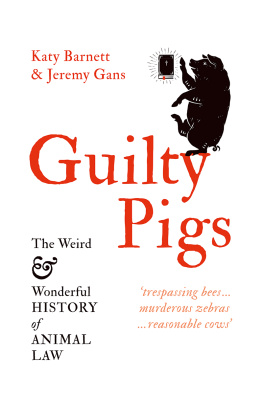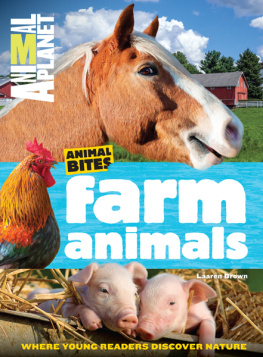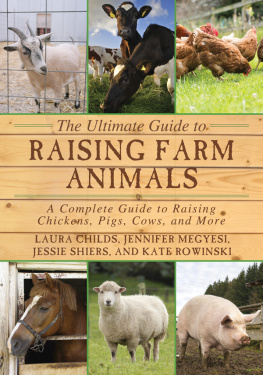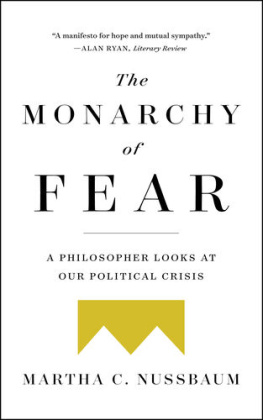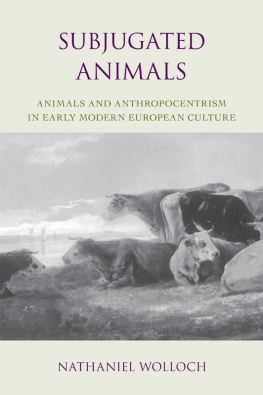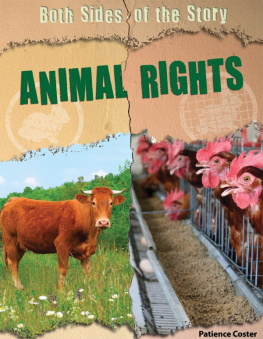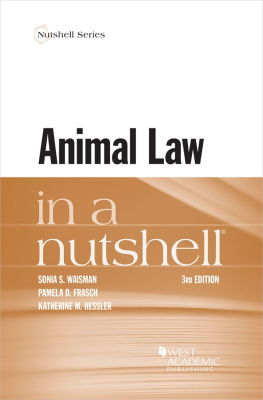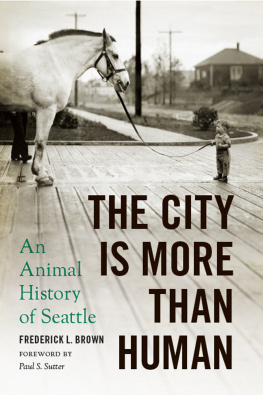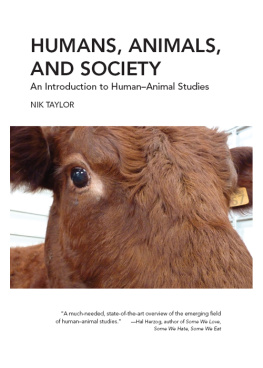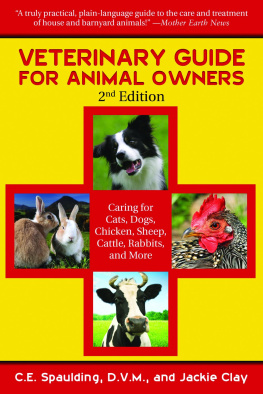Published by La Trobe University Press in conjunction with Black Inc.
2224 Northumberland Street
Collingwood VIC 3066, Australia
www.blackincbooks.com
www.latrobeuniversitypress.com.au
La Trobe University plays an integral role in Australias public intellectual life, and is recognised globally for its research excellence and commitment to ideas and debate. La Trobe University Press publishes books of high intellectual quality, aimed at general readers. Titles range across the humanities and sciences, and are written by distinguished and innovative scholars. La Trobe University Press books are produced in conjunction with Black Inc., an independent Australian publishing house. The members of the LTUP Editorial Board are Vice-Chancellors Fellows Emeritus Professor Robert Manne and Dr Elizabeth Finkel, and Morry Schwartz and Chris Feik of Black Inc.
Copyright Katy Barnett and Jeremy Gans 2022
Katy Barnett and Jeremy Gans assert their right to be known as the authors of this work.
ALL RIGHTS RESERVED.
No part of this publication may be reproduced, stored in a retrieval system, or transmitted in any form by any means electronic, mechanical, photocopying, recording or otherwise without the prior consent of the publishers.
9781760641849 (paperback)
9781743822159 (ebook)

Cover design by Tristan Main
Text design and typesetting by Tristan Main
Cover images from FoxysGraphic / Alamy Stock Vector (pig) and Sergey Pykhonin / Alamy
Stock Vector (bible)
Every effort has been made to trace copyright holders and obtain their permission for the use of copyright material. The publisher apologises for any errors or omissions and would be grateful if notified of any corrections that should be incorporated in future reprints or editions of this book.
This book is dedicated to the memory of Lucy Tilly Houghton
(3 October 1992 29 June 2020)
INTRODUCTION
ANIMALS LAWS
O N A SATURDAY MORNING IN AUGUST 2012, THREE GEN erations of the Edward family went shopping at The Basin, a suburb in the foothills of Melbournes Dandenong Ranges, feted for its village atmosphere. En route to the local bakery, Emily Edward noticed two Staffordshire terriers roaming around the park. Later, her mother, Jennifer, browsing in a store, saw two dogs sprint through the alley behind the shopping strip. Sensing something was amiss, she went looking for her daughter, only to find the staffies attacking a Jack Russell terrier and Emilys four-month-old border collie. While Emily screamed at the dogs, Jennifer tried to loosen the jaws of the dog that had latched onto the puppys neck and ear. The local butcher and a passer-by came to the rescue and pulled the staffies away, but Jennifer was left with a puncture mark and a torn finger, prompting a trip to a medical clinic. The incident led to the life of a four-year-old Staffordshire terrier called Izzy being put on the line and, as it happens, this sparked a landmark High Court judgment three years later.
The question of how the law should respond to this incident and the many conflicting interests of the parties involved the staffies, their owner and the Edward family gave rise to a decision called Isbester v Knox City Council, probably the most important Australian decision on animal law in recent years.
Tania Isbester, the staffies owner, sued the Knox City Council the administrative body of a local government area in Melbournes eastern suburbs when it decided that her dog Izzy should be put down. She initially sued them in Victorias Supreme Court, then in its Court of Appeal and finally in Australias High Court. Each of those courts ruled on the dispute and, importantly, they published the reasons for their rulings. It is this case that prompted us to write this book. Some years ago, we began to discuss the many issues it raises about the relationship between animals, humans and the law.
As we will see, Isbester v Knox City Council ostensibly focused on Tania Isbester and her local council but was really all about Izzy, a four-year-old Staffordshire terrier, and her life and death. Izzys fate rested on a statute enacted by Victorias parliament that allowed what could have been a private law dispute about compensation for Jennifer Edward, who was bitten by Izzy, to be initially dealt with as a criminal prosecution of Izzys owner and then as a government decision about Izzy herself. In short, the case is about a courts decision on a common law rule concerning administrative law, which, in the end, saved Izzys life.
Non-lawyers may be wondering what we mean when we say that this could have been a private law dispute. Lets consider that first, and then move on to consider the criminal law and public law aspects of the case.
Private Law: Restoring the Edward Family
Private law deals with the legal rights and obligations humans have towards each other as private individuals. Two common types of private law are contracts, by which two individuals agree to reciprocal obligations, and the law of property, which allows us to enforce rights and obligations about what we own including animals whether or not others agree. The main sort of private law addressed in this book is tort (from the Norman French word for wrong), which deals with instances of people wronging each other, and what the wrongdoer must do to make it up to the other person. There are many ways in which people may wrong each other: by interfering with anothers body, property or business; by being careless; and by destroying someones reputation.
There are obvious overlaps between tort and criminal law, but what makes tort different is its focus on what the offender can do to make it better for the wronged party (rather than how the state should punish the offender for their actions). In early medieval times, English law often dealt with what we would now consider criminal offences through the law of tort, resolving incidents such as the one that we have been describing through the law governing private obligations.
The initial law that applied to Izzy was property law, which, as we mentioned, is a type of private law that governs what people can do with and to things owned by someone else. Many animals especially in urban settings are someones property, just like a bicycle or a bag. This may be surprising to some readers because of course Izzy was not just a bicycle or a bag. She had special value to her owner, as indicated by how hard Isbester fought on her behalf in court. She also had a relationship with the family who housed and provided for her. Nonetheless, she was, for the purposes of the law, to be regarded as property.
The law of property means that people generally cannot do anything to a companion animal owned by someone else without that owners permission. But the law is full of (mostly) sensible exceptions, including provisions for people to do otherwise forbidden things within reason that are necessary to protect themselves, others and even property. An exception of that sort clearly allowed Jennifer, the butcher and the passer-by to pull the two staffies away from the Jack Russell and the border collie that day. The same exception almost certainly allowed them to place the staffies in a fenced-off area at the back of a bike shop, which they presumably did to stop them attacking more animals or people. In an extreme situation, the law could have allowed the locals to injure or even kill the staffies, but only if they properly thought that there was no other way to keep everyone safe.

